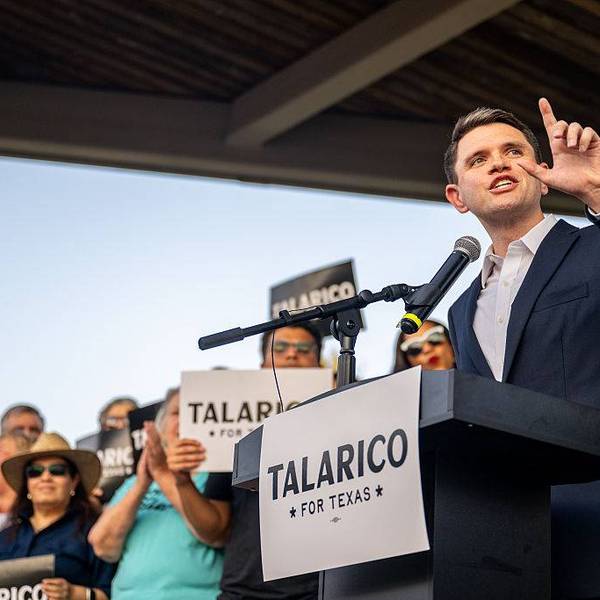The actual level of hardship, the Poor People's Campaign and the Institute for Policy Studies found, is far higher -- at more than 140 million people in the United States. Meanwhile our death toll approaches an unthinkable 400,000.
Voters of all stripes are demanding action. COVID-19 relief took center stage in Georgia, with Democrats Raphael Warnock and Jon Ossoff campaigning for $2,000 cash payments and ousting Republican incumbents who'd helped GOP Senate leader Mitch McConnell squash them.
But support for relief goes even deeper than that. A recent Data for Progress poll found 65% support nationally not just for the one-time $2,000 payments McConnell has resisted, but for monthly $2,000 payments to support Americans through the crisis.
After months of resistance, McConnell agreed to an eleventh-hour relief package late last year. Many Americans were relieved to see their unemployment insurance continued and an extra $600 in their pockets, but these measures were too little, too late for millions behind on their bills. State and local governments have meanwhile been starved just when resources are needed the most.
McConnell held up cash payments and aid for local governments because he wanted immunity for corporations whose negligence gets their workers or customers infected during the pandemic. But a December Vox poll showed that 81% of Americans cared more about COVID-19 relief than liability protection for businesses.
Incoming President Biden has promised a "Marshall Plan" from the federal government to promote the needed distribution for state and local governments. Now, with a Democratic House and Senate, he should engage this broad bipartisan support to get one.
There's also broad bipartisan support about who should pay their fair share to support it: billionaires.
According to the Institute for Policy Studies, the combined wealth of America's billionaires has increased by more than $1 trillion during the pandemic. Poll after poll shows overwhelming support for raising taxes on this group, who got a huge tax cut under Trump. A recent Reuters poll found 77% of Democrats and 53% of Republicans supporting taxing billionaire wealth.
Other polls show support for popular ideas progressives have championed for years.
A recent CNBC poll found broad bipartisan support for raising the minimum wage to $15 an hour (60%), making public college free (57%), and "Medicare for All" (54%). Majorities of Republicans joined Democrats in supporting paid maternity leave and federally supported child care. More than 40% of GOP voters support increasing food assistance for people in poverty.
Even on hot-button issues where Trump has stoked partisan divides, Republican and Democratic voters are often united. A majority of Trump voters told pollsters this year they support protecting undocumented immigrants brought here as children from deportation, and majorities of both Democrats and Republicans support taking more action on climate change.
Finally, there's the U.S. Postal Service, which was badly battered and politicized under the Trump administration. Yet it remains the most popular federal agency of all, with over 90% of voters supporting crisis aid for the vital public service.
Bipartisanship won't solve all our problems. Republican support for racial equality and transgender rights still remains absent, so executive orders may be necessary to address these critical issues.
Yet it's clear that possibilities for bringing together such a deeply divided country not only exist but abound. Biden, Congress and voters must work hard to make sure the policies the majority of us support become law.




